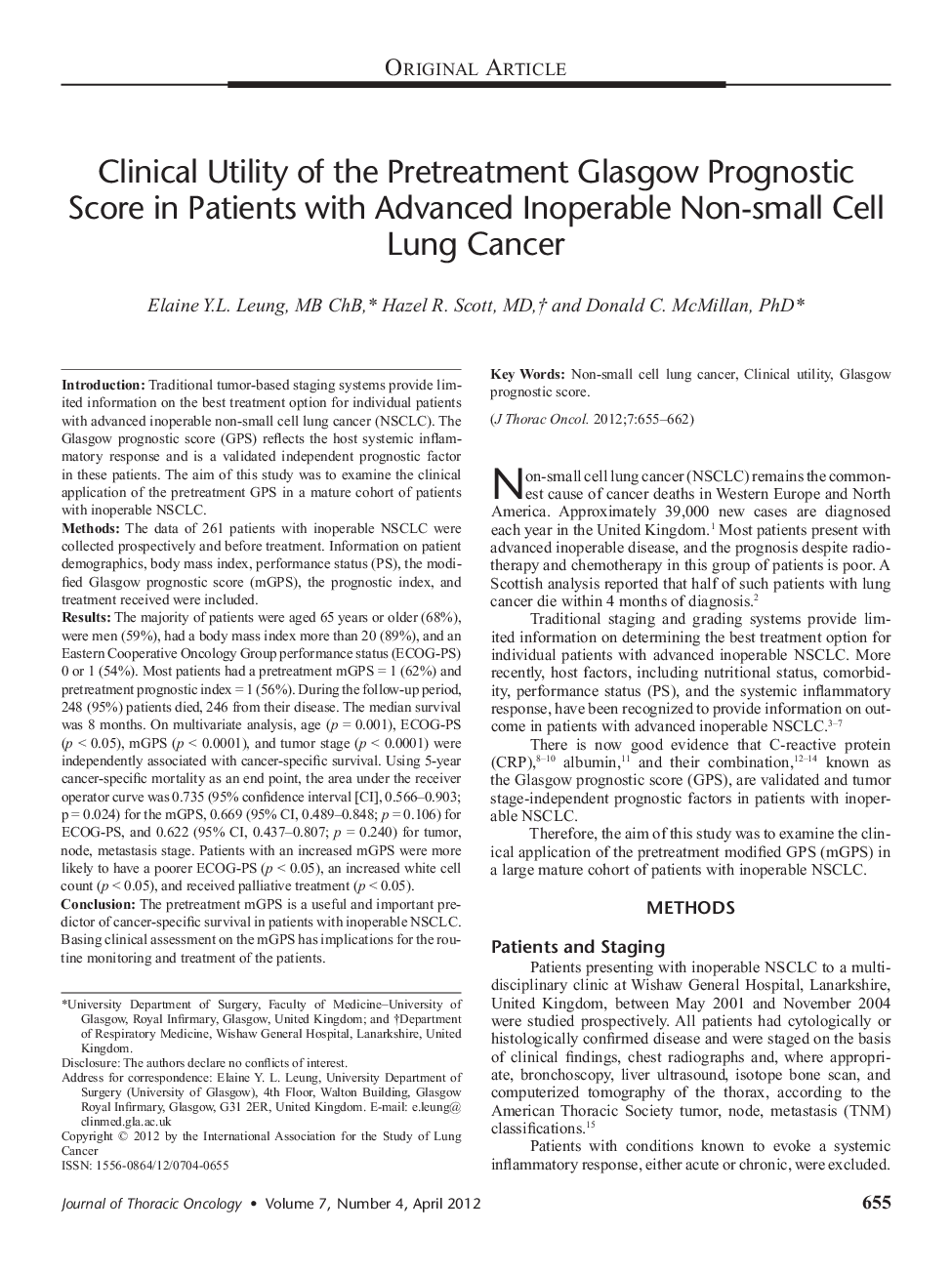| کد مقاله | کد نشریه | سال انتشار | مقاله انگلیسی | نسخه تمام متن |
|---|---|---|---|---|
| 3990770 | 1258749 | 2012 | 8 صفحه PDF | دانلود رایگان |

IntroductionTraditional tumor-based staging systems provide limited information on the best treatment option for individual patients with advanced inoperable non-small cell lung cancer (NSCLC). The Glasgow prognostic score (GPS) reflects the host systemic inflammatory response and is a validated independent prognostic factor in these patients. The aim of this study was to examine the clinical application of the pretreatment GPS in a mature cohort of patients with inoperable NSCLC.MethodsThe data of 261 patients with inoperable NSCLC were collected prospectively and before treatment. Information on patient demographics, body mass index, performance status (PS), the modified Glasgow prognostic score (mGPS), the prognostic index, and treatment received were included.ResultsThe majority of patients were aged 65 years or older (68%), were men (59%), had a body mass index more than 20 (89%), and an Eastern Cooperative Oncology Group performance status (ECOG-PS) 0 or 1 (54%). Most patients had a pretreatment mGPS = 1 (62%) and pretreatment prognostic index = 1 (56%). During the follow-up period, 248 (95%) patients died, 246 from their disease. The median survival was 8 months. On multivariate analysis, age (p = 0.001), ECOG-PS (p < 0.05), mGPS (p < 0.0001), and tumor stage (p < 0.0001) were independently associated with cancer-specific survival. Using 5-year cancer-specific mortality as an end point, the area under the receiver operator curve was 0.735 (95% confidence interval [CI], 0.566–0.903; p = 0.024) for the mGPS, 0.669 (95% CI, 0.489–0.848; p = 0.106) for ECOG-PS, and 0.622 (95% CI, 0.437–0.807; p = 0.240) for tumor, node, metastasis stage. Patients with an increased mGPS were more likely to have a poorer ECOG-PS (p < 0.05), an increased white cell count (p < 0.05), and received palliative treatment (p < 0.05).ConclusionThe pretreatment mGPS is a useful and important predictor of cancer-specific survival in patients with inoperable NSCLC. Basing clinical assessment on the mGPS has implications for the routine monitoring and treatment of the patients.
Journal: Journal of Thoracic Oncology - Volume 7, Issue 4, April 2012, Pages 655–662